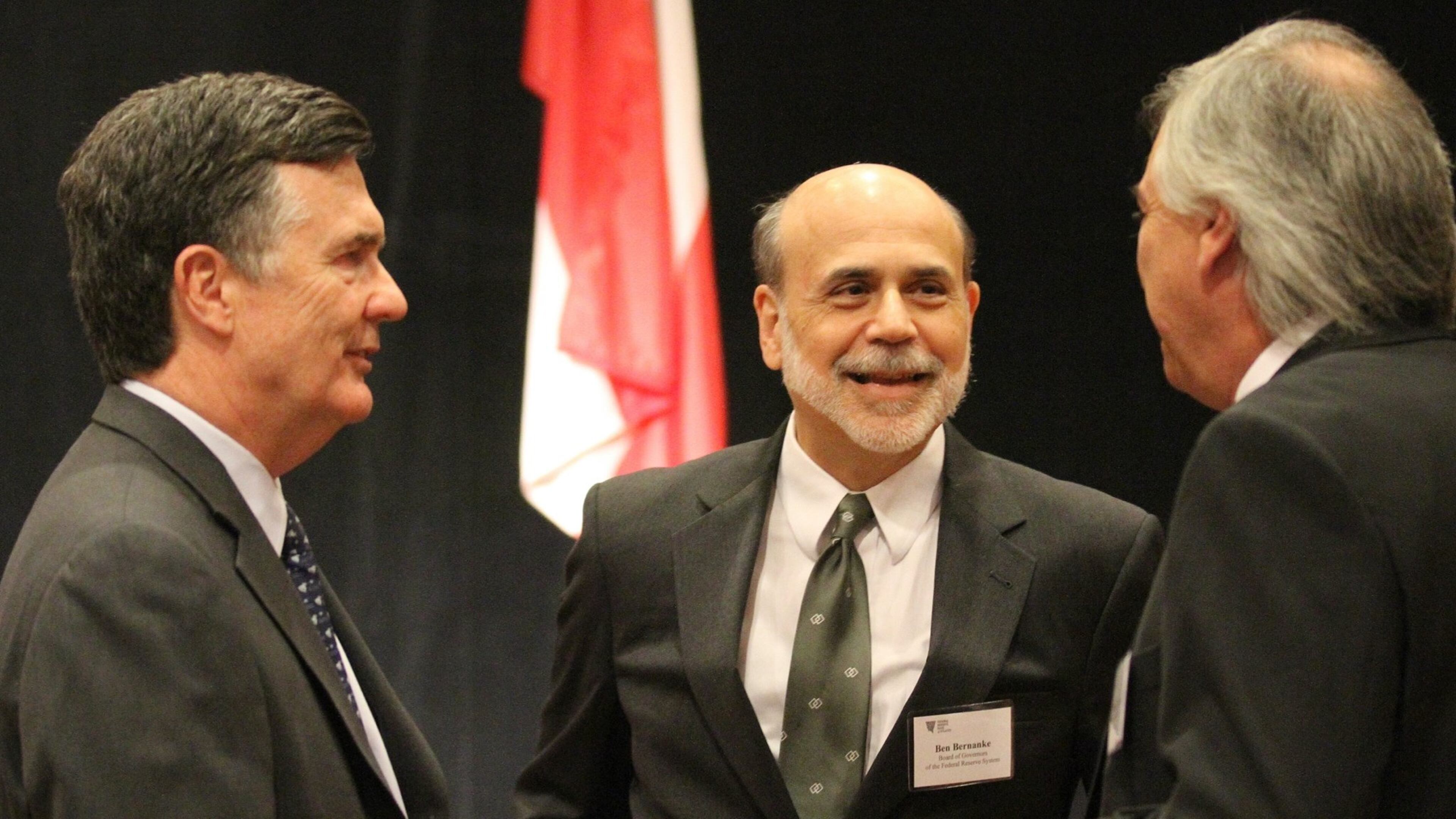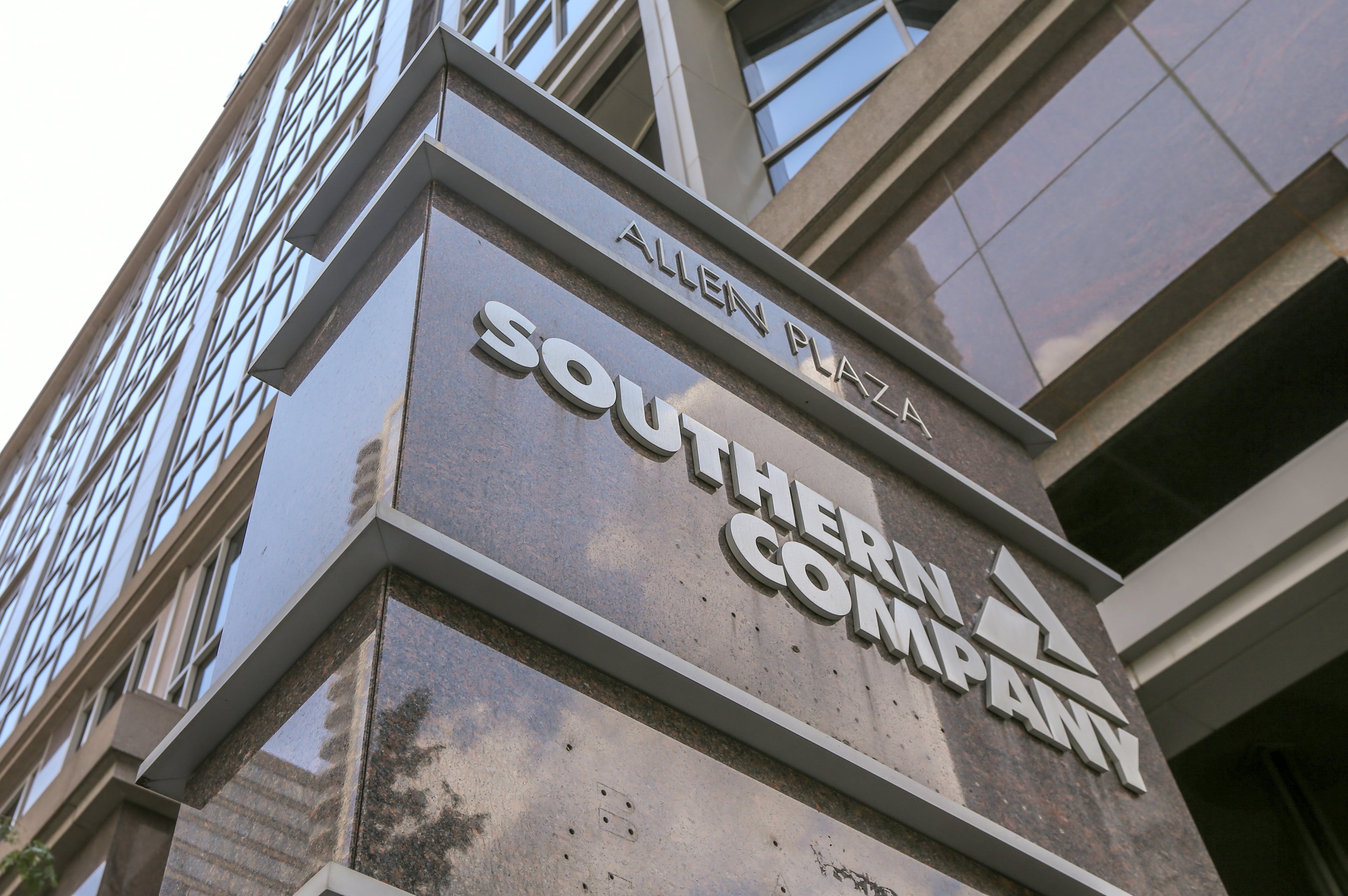‘Lessons were learned,’ outgoing Atlanta Fed chief says

Like a victim of the oft-cited Chinese curse, Dennis Lockhart has lived in interesting times professionally.
He became president of the Atlanta Federal Reserve a few months before the economy slid into the deepest, most painful recession since the 1930s – a crisis that has largely dominated Fed policy since.
As unemployment spiked and millions of Americans lost homes to foreclosure, the Fed slashed interest rates to zero and pumped money into the system. Lockhart was often a member of the Fed committee that sets interest rates.
Ten years later, the Fed is cautiously moving toward normalcy and Lockhart is preparing to step away: He retires at the end of the month.
Lockhart, 70, served in the Marines, then built a career in banking, mostly for Citigroup, and in academia. What’s next? He said he has “some irons in the fire” and, while nothing is certain, may go back to teaching.
Lockhart spoke with the AJC about the financial crisis and its lessons, the current state of the economy — he does not think it is "a mess" — and the importance of keeping the Fed free of political control.
Q: You were here for the worst of the crisis. How do you judge how you and the Fed handled it?
A: Many of the indicators of economic health have come full cycle back to where they were prior to the crisis, prior to the recession.
Employment is very close to where it was before. And conventional measures, like the unemployment rate, are in the zone of full employment and the growth rate of the economy, while not terribly robust, is solid. And I give the Fed and its policies a lot of credit for engineering that cyclical recovery.
If there is an argument that can be made, it is that it didn’t come fast enough. It took a long time to get back to where we are today.
Q: Looking back, do you think you assessed the depth and magnitude of the crisis?
A: Not immediately. I remember this period very well – it was my first year on the job. And in July of 2007, was when the capital markets, particularly the sub-prime, mortgage-backed securities market began to fall apart.
Obviously we were observing that. But many of my colleagues thought this was a sort of sideshow, something peculiar to the mortgage market. Or even a sub-category of the mortgage market and that it wasn’t going to be contagious and it wasn’t going to affect the whole economy and ultimately in the financial crisis, affect the whole world.
I would say, starting in early 2008, I and many of my colleagues began to recognize that we were dealing with something that was really serious and it could go very badly and it required some really strong medicine.
Q: Are we ever likely to see a repeat of the crisis or do you think we are structurally protected from having that happen again?
A: I would never say never. There are obvious serious thinkers – both alive and dead – who make the argument that market-based capitalism is built for boom and bust. But having said that, the financial system, the banking system is in much stronger condition – emphasis on much – than it was in 2006 and 2007. The resilience factor is much higher.
Short of something that is again, a completely unlikely event, a global event, a geopolitical event.
Q: Do you think Dodd-Frank (the post-crisis law to regulate banking) needs to be revised?
A: First, I view financial regulation – maybe not other forms of regulation – as having a pendulum character. And it is natural that the pendulum swung very far just after the worst financial crisis in fifty years. So the response to that financial crisis and that experience – particularly the response of the taxpayer footing the bill for bailouts of private financial institutions – that all to me seems in retrospect to be very predictable.
I think now that conditions are so improved that the swinging back of the pendulum, to some extent, is appropriate.
Q: In the movie “The Big Short,” they make the point that none of the bankers went to jail, that none of the top executives lost their jobs… But you think that there was enough institutional pain despite that?
A: Despite that. Even those that the public didn’t feel were punished adequately had a lot of financial punishment and in effect shame punishment. So I think the lessons were learned. And I really hope any swinging of the pendulum isn’t going to open up any unsound practices and unsound risk-taking. I would hope that we don’t invite the Wild West again.
Q: You have talked about our slow growth. What would give us back the trajectory we used to have?
A: If you think of growth as growth in the workforce, times the hours that the workforce works, times the productivity that the workforce is able to deliver, the workforce growth is going to slow. And in all plausible scenarios, I and my team here see labor force participation resuming its decline. It’s just the sheer numbers of baby boom generation people getting to retirement age…
We don’t have a wind at our back simply in terms of the number of people working in the country. And productivity growth has been very weak on a secular basis for a number of years.
Q: Does that mean restraining immigration would be one of the worst things you could do?
A: Well, those are your words, not mine. I don’t want to wade into a political battle, but simply to say that if you really want to address the rate of growth of the workforce, the number of people working, one of your options would be immigration.
Q: What are the other options?
A: If you want to take a long-term view, encouraging fertility…
The effort to make possible a faster rate of growth is probably more likely to come from looking at the productivity problem, investing in technologies, continuing to work hard on education.
Q: There have been calls for the Fed to become more diverse among the top executives (most of whom are white men). Do you think that’s important?
A: I do think it’s important. I think it’s important to every institution – including the Federal Reserve. I’m not an insider in the hiring process, but I am aware that a quite diverse slate was presented to our board.
Q: From your description of the economy, one might conclude that it is not “a mess.”
A: I certainly would not call the economy at present a mess. We are close to full employment. We are growing at a moderate pace. Inflation is under control and moving in the direction of what we deem the healthiest rate, which is 2 percent. Our financial system is in a solid condition. It’s not what I would call a mess.
Q: Is there any worry you have, something that concerns you about the outlook?
A: Let me tell you where a change of economic momentum could occur, and it would have to occur first with the consumer.
The question is, what could shock the consumer into a change of behavior – and it would have to be a pretty strong change of behavior. Typically, the consumer has been influenced by gasoline prices and by employment prospects.
Q: Do you have any concern about the continued independence of the Fed?
A: Let me answer you this way, I feel that this is a very important principle. Any central bank – and certainly the central bank of the United States – should be independent of short-term political influence and should be able to formulate monetary policy with a great deal of independence and then answer about what the institution has decided to do, to the political body that we answer to, which is Congress.
I think that’s a fundamental principle of a country running itself well.
I will leave it at that.
THE FED
The Federal Reserve is the nation’s central bank, with a board of governors in Washington D.C. and 12 regional banks. The district based in Atlanta covers all or parts of six states.
Created by Congress in 1913, the Fed sets monetary policy, supervises banks and provides cash and transfers to the banking system. The Fed employs what is thought to be the largest collection of economists on earth, sponsoring and producing a regular flow of research papers.
Regional banks also regularly report on economic conditions in their districts.
Most high profile is the Fed’s Open Market Committee, which sets a benchmark interest rate that influences the direction of consumer rates on loans, mortgages and savings accounts. The presidents of the regional Feds cycle in and out of that committee and serve as chief executives of their district bank.
Dennis Lockhart’s successor as president of the Atlanta Fed hasn’t been named. First Vice President Marie Gooding will become interim president when he retires next week.
— Michael E. Kanell



